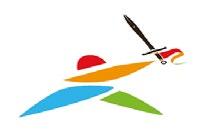
37 minute read
A perspective of the 46th US presidential inauguration ceremony
Mombasa should diversify menu to attract local tourists
By Boniface Mwalili
Advertisement
Sun, sand and coconuts; it sounds like the coast, doesn’t it? As a matter of fact, no other destination in Kenya offers this specific combination of natural delights. For centuries, the Kenyan Coast’s stunning beaches, enchanting cuisine and warm people have drawn millions of visitors from far and wide.
Among the dozens of beach towns and islands that dot Kenya’s coastline, the city of Mombasa remains by far the busiest and most popular destination for local and international travellers. In recent years, the cosmopolis City has undergone a gradual transformation in an effort to reclaim its historical status as a global business and tourism hub. Infrastructure projects such as expansion of ports, strategic road upgrades and outstanding real-estate developments all demonstrate Mombasa’s tremendous growth.
Traditionally, Mombasa has heavily relied on international holiday-makers who flock the City’s hotels and beaches during the northern hemisphere’s cold seasons. With the decline of international travel in the wake of the Covid-19 pandemic, domestic tourism has been touted as a potential lifeline for tourism dependent towns such as Mombasa. Tourism players have therefore been encouraged to develop new products that will drive walk-in local customers to their establishments and boost occupancy.
For the majority of Kenyans, hotels are considered an out of reach luxury. To bridge this gap, hotels and travel destinations will need to deliberately design products that will appeal to local customers both in terms of experience and cost. Wellness-themed activities such as school competitions, corporate workout sessions or water sport events would be a timely addition.
Promote cultural richness
Spaces such as the revamped Mama Ngina Waterfront and Swahilipot Hub could host regular family-friendly cultural activities to create a vibrant ambience for locals and visitors. Experiences could also be designed to boost the exotic coastal street food culture. The unique Swahili dress code comprising lesos, deras and kanzus should also be mainstreamed as part of our formal and national dress.
Mombasa is richly endowed with unique resources that could offer long term reprieve to those affected by the tourism sector’s decline. Research by the Jomo Kenyatta University of Science and Technology (JKUAT) identified the coconut plant as one of the region’s most underutilized natural resources despite its immense value and abundance. As a long-term intervention, the edible plant which is used to make skin & hair care products, food additives, cooking oils, furniture and mats among other items could hold the key to unlocking Mombasa’s manufacturing potential.
Implementing such interventions will require a well-coordinated approach from multiple stakeholders. A revamp of the city’s visual identity would provide a good starting point around which to rally local, regional and international players while building excitement around this new strategic direction. A relatable symbol, like a new emblem bearing an image of a coconut, would herald a new promise for Kenya’s first capital City.
Domestic tourism holds the key to successful recovery of the tourism sector
By Carole Mosiany

The Kenyan tourism industry has been one of the sectors greatly affected since the onset of the Corona pandemic in early 2020. The first crumble of the cookie came when the government guidelines to curb the spread of Covid -19 were enforced. The cancellation of flight travel, the dawn to dusk curfew, restriction of movement in key cities, ban on events and the closure of hospitality establishments more so eateries were some of the stringent rules that massively hit the tourism sector. What followed was not pleasant and sadly included retrenchment of employees in tourism related organizations, closure of hotels some of which were international franchises and the ultimate cancellation of holiday bookings.
The news headlines appeared grim for the many months that followed. However, fast forward to now when most of the restrictions were disbanded or eased to allow a safe return to normal life.The Christmas holidays in 2020 offered a glimmer of hope as the the hotels and national parks began to receive streams of visitors. The dark cloud began to open up to a ray of home with local tourists being the most presumably inclined to plan holidays perhaps because of long periods of working from home and giving themselves the chance of leisure.
Despite the resumption of flight travel, international tourists have not yet reached the usual expectations of high peak season. Ultimately, which now gives Brand Kenya, the government and the tourism investors the opportunity to consider marketing one untapped aspect that could be a great potential to the industry - domestic tourism.
In the past years, there have been more promotions to vigorously sell Kenya to the international market evidenced through the country’s participation in international trade fairs and tours that seek to get travellers from the much more developed countries in the west and east to sample the beauty of Kenya. This market may now not be sustainable at this time due to Covid -19 guidelines and much so because most people are more cautious with their travel plans and life in general such that travelling to the third world country is not so appealing.
This is where the focus can work well internally. Kenya generally has a solid number of expatriates and citizens who could do a lot of travel and sample the splendid sites of Kenya. With the right kind of marketing with localized packages the numbers can go up and get tourism back on its feet. The one advantage of the local market is that it is sustainable given that the clients can plan holidays multiple times throughout the year and weekends are fantastic times to relax for many so that even if the borders are shut, there are still local tourists supporting their own brand. Domestic Tourism is a good food for thought for what the future holds.


Politics and the Covid-19 vaccine
By Frank Ojwang – University of Lapland, Finland
Regional economic block-led negotiation for equitable access to the Covid-19 vaccine The Covid-19 pandemic has illuminated so many cracks in the Sub-Sahara African politics and governance system. More than ever before, the conversations around the true sovereignty and political maturity of African member states and governments have been aroused. Covid-19 adds to the list of African pandemics that rekindle the embarrassing low levels of emergency response and preparedness by Sub-Sahara Africa member states including Kenya, exposing the region as an aid-dependent entity that continues to rely on the West and China for her political stability.
In addition, the continent’s poor healthcare system has been an issue of global concern to the World Health Organization (WHO) and other global stakeholders during the Covid-19 global pandemic. This begs the question of what the future holds for Sub-Sahara Africa and her people as the developed countries begin exploring life in the outer space.
Role of PR in this regard
The Public relations (PR) profession is challenged to contribute alongside other disciplines towards improving the African politics and governance system. The challenges in Africa require a multidisciplinary approach to overcome the impediments of the 21st century including the global and regional pandemics. As politics and governance play a pivotal role in the everyday life and wellbeing of the African people, PR professionals must make their mark as agents of change that shape the development trajectory of developing African countries. The PR voices must curve their niche and make their contribution visible in the political landscape of developing countries, especially during the global pandemic.
During the Covid-19 pandemic, the need for integrating Africa has re-emerged. The suspension of air travel globally presented a never-seen, never-imagined and never forecasted scenario even by the world’s best economies. Drawing lessons from the European Union (EU) that has been worst hit despite having one of the best global healthcare systems among her member states, has shown the benefits of integration and negotiating as a regional block. The African Union (AU), Economic Community of West African States (ECOWAS), Southern Africa Development Community (SADC), East Africa Community (EAC), Intergovernmental Authority on Development (IGAD) and other regional bodies in Sub Sahara Africa need to step up their negotiation for the COVID-19 vaccine for Africa.
The PR professionals in these regional bodies need to elevate the profession during crisis situations in responding to issues affecting the vulnerable and marginalized groups across Sub Sahara Africa. Africa has got to politically mature and grow up her governance capacity in order to protect her people through tactful negotiation that is led by a multidisciplinary team of professionals, with the PR role visible and contribution clearly felt. Africa needs to prioritise and accelerate integration of member states in order to strengthen intra and interAfrican trade, and allow free movement within the continent as one of the ways of bolstering economic empowerment and strengthen the negotiation muscle of the regional bodies in global platforms.
Invaluable lesson from Covid-19
A key lesson learnt from the pandemic is that regardless of how well-prepared a country or region is, the pandemic does not allow the political system and governance
structure to operate conventionally by the book. The pandemic has ambushed the developed economies in Europe and the United States to innovate and manage the situation in a way that would result in the least casualties possible. But even with the best healthcare system and resources, the developed economies struggle in their efforts to contain Covid-19.
The situation is made worse by the constant mutation of the coronavirus, presenting a new challenge for the already struggling and over-stretched healthcare system. African political and governance systems should be proactive in putting measures in place to help mitigate the coronavirus in the unlikely event that it surges through the various waves of infection.
A potential surge by Covid-19 in any African state has the potential to be catastrophic considering the ill-equipped and understaffed healthcare facilities. This can lead to a chaotic and lawless situation resulting in a paralyzed political and governance system. Despite her illequipped healthcare system and poor emergency response mechanisms, the pandemic has not adversely affected the Sub Sahara African people in the proportions that it has in the global north thus far. But the worry is that despite the potential threat posed by the pandemic, African politics has not changed.
As the PR profession plays a central role in dissemination of government guidelines through the offices of the government spokespersons and other official representatives in other agencies of government, it is about time that the PR professionals join the decision-making table and contribute to the sustainable change that the PR professionals aspire to help achieve.
Shaping the narrative
The PR profession has a role in re-writing the African political and governance narrative. African governments have been accused of embezzling Covid-19 funds instead of using the funds to improve her healthcare system and strengthen her emergency response instruments during the pandemic. With the exception of a few African countries, the level of risk remains as high as it was when the WHO declared coronavirus a global pandemic.
The politics around donor aid meant for Covid-19 faces a myriad of challenges. In addition, the Covid-19 pandemic has been used to violate human rights in Africa and to shrink the democratic space in African countries that have had their elections held around the pandemic period. Covid-19 is being used to punish the poor in Africa. The PR professionals have a role to rewrite the narrative and through PR, promote mature politics and good governance during and beyond the pandemic.
Africa has a bright future ahead, but only if we build our politics and governance system on the strength of our diversity – multidisciplinary and cultural richness. Africa, indeed has a brighter future if we integrate the member states and negotiate for a fair share of the Covid-19 vaccine as a continent through one regional economic agency.
Threatening the position of young professionals in PR
By Diana Lindy
“The young restless professions, here is our voice.” Writing, as the voice of the youthful full of professional knowledge, energy and the new era know how, I voice their place in this professionalism field.
Public Relations is a field of dynamic adjustments, distinctively unique from all the others, in ways that only those in the profession can understand. It boasts of a competency-based culture and is saluted and adored by many.
Many young professionals in the field are disenfranchised by the lack of growth opportunities in the field, as well as the oversaturation of those with similar backgrounds and training in the workplace. Armed with knowledge and a thirst to practice, the reality of the workplace is often a different scenario, and the lack of opportunity and positions disheartening. The older set of professionals remains rooted in their spots, and younger professionals clamouring for them have no choice but to wait, for however long it takes. The industry is therefore lacking the breath of fresh air brought by those who are newly minted into the industry; after all a new broom sweeps clean.
Misuse of a young professionals is also a threat. If a fresh graduate gets lucky enough to secure a job at a public relations office, those already in office tend to manipulate them. It begins at internship level, killing the spirit to fight for jobs or even higher ranks in major firms. In most cases, they are reduced to errand boys and girls, being denied the opportunity to learn further and expound their knowledge. In the offices, they are assigned ‘lighter’ duties because they are considered to be lacking sufficient skills to handle major tasks. Skills are acquired through learning; if we are not allowed to learn, how will we acquire the necessary skills?
Patriarchy and corruption are additional threats, and women at entry levels of institutions may never realize their full potential due to discrimination.
All these issues have been repeatedly brought up but never fully addressed. The question remains-is there a place for young professionals in the industry?
Government must improve to spur uptake of Covax
By Caroline Waithira

Human history is replete with the search for wellness of body, mind and soul through the use of plant, animal and earth based remedies. Ancient innovations in the treatment of various human maladies is recorded on cuneiform, papyrus and rock painting. What is interesting, however, is the fact that the possession of knowledge and/or medicine has had a bearing on the politics of the day from yore to date.
Egypt’s first physician, Imhotep, was made the Chief Minister of Pharaoh Djoser in the 3rd Millennium BC. Grigory Rasputin is best known for his role as a mystical adviser in the court of Czar Nicholas II of Russia in early 1900s. In the present day, pharmaceutical firms play a key role in influencing policy and politics world over.
According to a Guardian article of 19th October 2017 titled How big pharmacy’s money – and its politicians – feed the US opioid crisis, former US President Donald Trump said, that pharmaceutical companies spend far more than any other industry to influence politicians. Drug makers have poured close to $2.5bn into lobbying and funding members of Congress over the past decade. According to the US Centre for Responsive Politics, the pharmaceutical industry has about two lobbyists for every member of Congress and is reported to have spent $152m on influencing legislation in 2016. Drug companies also contributed more than $20m directly to political campaigns.
At global level, manufacturers of methadone, have consistently lobbied the World Health Organization in Geneva and United Nations Office on Drugs and Crime in Vienna to influence countries’ laws, policies and programming on drug addiction therapy. All these efforts are geared towards profit of course.
Reuters reported on 7th January 2021 that Kenya had ordered 24 million doses of the COVID-19 vaccine developed by AstraZeneca and expected them to arrive in the second week of February. The Business Daily of 15th February 2021 reported that Rwanda had started its first phase of vaccination against Covid-19 with the limited 1,000 doses of the Moderna vaccine administered to highrisk groups, and was expecting to receive at least 996,000 doses of AstraZeneca and 102,960 doses of the Pfizer vaccine between February and March 2021. The politics around the vaccine in these two countries revolves around which target group should be considered first recipients, that is whether frontline healthcare workers, pupils and teachers or even political leaders, and whether it should be free or at a cost.
In the United States, as the first round of COVID-19 vaccinations trickled out, many members of Congress lined up at the Capitol Hill physician’s office to get immunized. But then the Los Angeles Times of 24th December 2020 asked “are politicians getting the vaccination first setting an example or cutting the line.” The early vaccinations of politicians and their spouses spurred outrage on social media in the US, Germany and Israel, with several Twitter users opining that they should not be able to “jump the line” ahead of doctors, nurses and older people.
Kenya seems to be already in political campaign mode drawing large crowds and politicians going an extra mile to mingle with citizenry. The political class, therefore, is at great risk of contracting and spreading the virus. It will be interesting to see whether they will scramble and jump the line to receive the vaccine in order to protect themselves even as they rally followers for votes.
Then there is the issue of sceptics and the mistrust of the COVID-19 vaccination drive. Privately, there are wananchi who mistrust the vaccine and may not be willing to have themselves and family members receive the vaccine. Questions have been raised about the speed with which the vaccine was developed, the genuineness of efficacy trials, the issue of Africans being used as guinea pigs, and the possible negative long term health effects. These perceptions will require serious and consistent government-led advocacy to settle the fears and spur uptake of the vaccine when it finally comes.
The writer is a Development Communication Professional and a Member of the Public Relations Society of Kenya.
Vital lessons to be learnt in Biden and Netanyahu bold step
By Noel Ngadi
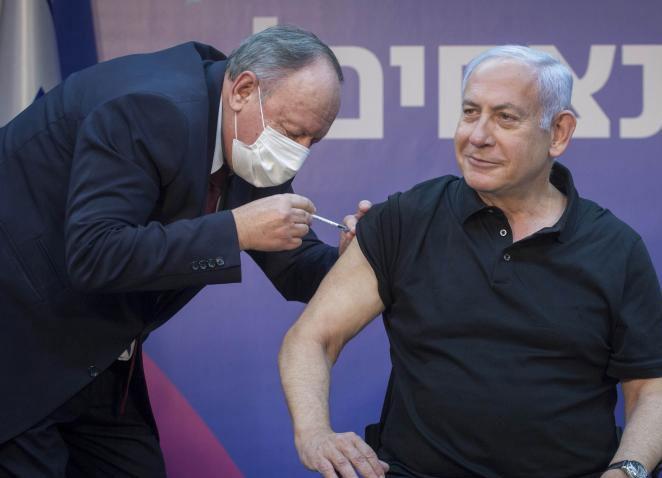
According to a public opinion survey by the Washington Post between AprilDecember 2020, the perceptions of Americans on the Covid-19 vaccine are fluid and primarily influenced by their political leaders’ standpoint. Republicans became more interested in a vaccine right after then president Donald Trump promised its availability just weeks before the 2020 elections.
Democrats were however skeptical and even senior democrats like Joe Biden and Kamala Harris question the effectiveness of a Trump-administration vaccine. These different political cues heavily influenced the degree of willingness by Americans to participate in a vaccination exercise.
Medical experts opine that, the pandemic can only be eradicated by a mass vaccination exercise. The depoliticisation of the Covid vaccine is therefore essential for the vaccine to experience higher acceptance rates which in the mediumterm would likely lead to the eradication of the virus. The politicians can depoliticize the vaccine by not treating it as fodder to their populist masses.
It’s imperative that politicians lead from the front like like Joe Biden, Kamala Harris and Benjamin Netanyahu done by publicly taking Covid jab. This has inspired confidence in their nations with a CNN report stating that acceptance rates in America for the vaccine had gone up 20%. This is particularly important especially in Kenya-for any future vaccination exercises for diseases like polio or measles-that people have confidence in a vaccine. (picture of Joe Biden)
Because of its apolitical nature, the Church has a far-reaching audience than politicians and therefore the clergy should have a role in educating the masses on the importance of the Covid vaccine. Previous church efforts at mobilizing the masses for vaccinations such as tetanus should be a reference point for future programs. The future is certainly brightas far as vaccinations are concerned-if the church takes the driving seat in the depoliticization of the Covid vaccine and other future vaccines.
With experts warning that the current covid-19 containment measures are not effective for the medium-term and long-term, a vaccine is the only way to mitigate the social and economic disruptions caused by the virus. It’s therefore imperative that the population makes informed vaccine choices devoid of political cues of their leaders for the betterment of our foreseeable future.
The writer is a freelance journalist and a social commentator.
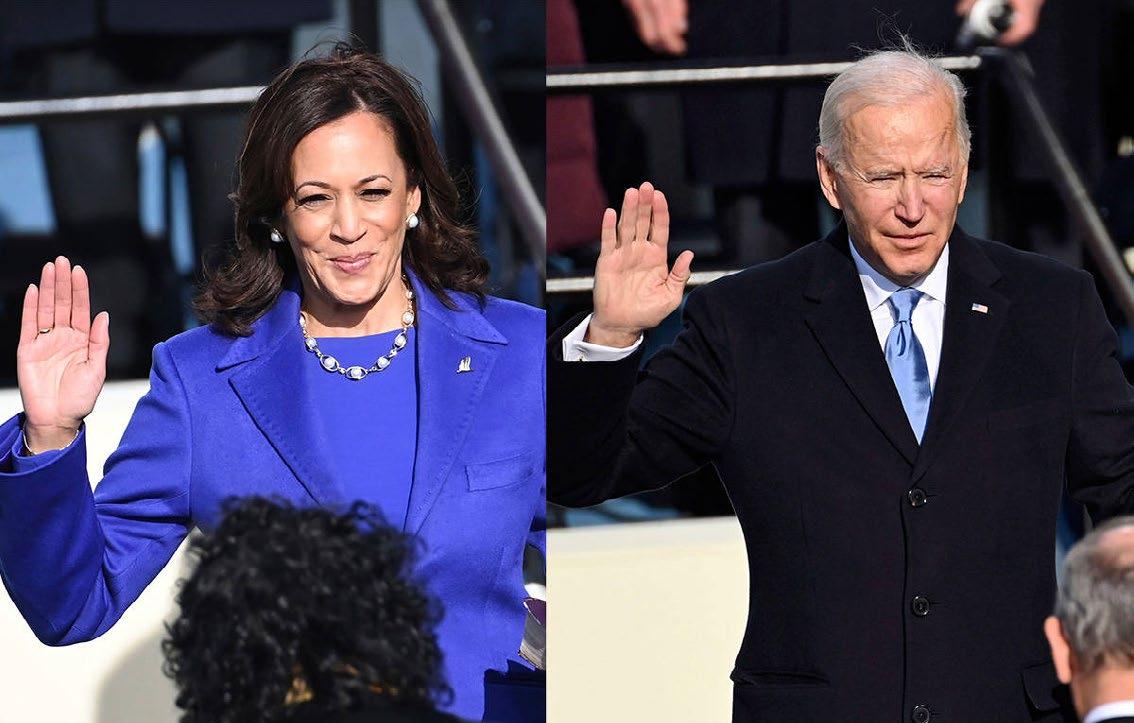
By Agneta Alubala
During the the 46th US Presidential inauguration ceremony- arguably, the most powerful and extremely political event ever. There were lots of ‘first ever’ appearances with regards to the ceremony. Among the ‘first ever ‘ was Kamala Harris being sworn in as US’s first female, Black and South Asian vice-president by Justice Sonia Sotomayor, the first Latina on the Supreme Court. Most important however, was the abundant women that were given precedence to feature in key roles during the ceremony.
Amy Klobuchar, senior Senator of Minnesota state was the master of ceremony, gave the opening inaugural remarks and also presented the President and Vice President their inaugural gifts. Was it politically correct for this particular individual to take charge of such noble role? Then there was Amanda Gorman became the first youngest person (girl!) to ever read at a presidential inauguration. The 22-year-old poet laureate exquisitely recited her poem, “The Hill We Climb” which awed the masses.Other notable women included Lady Gaga and Jennifer Lopez who gave a great rendition to the American national anthem and a powerful live performance respectively. More enthralling, was the sight of Douglas Emhoff the first second gentleman in American history who is also the first Jewish spouse of a vice president who gladly and humbly stood beside the Vice President.
Society has had a way of “othering” women as a weaker gender that are not fit to hold certain positions deemed to be arguably legitimately well suited for the male gender. America has proved that this misconception has been bypassed by time. It has been proven that women can access power even in political arenas. History has been written once again! People! Let no one drag you into the political discourse of why we should not celebrate this victory.

Ethics need to be an part of training & specialisation
By Kerry Sheehan
If I could wave a magic wand and change one thing about the culture of public relations, it would be this: if you work in PR and you don’t think ethics is a big part of your role, what that means and how to practice it in reality, you’re not doing your job and at worse are bad at your job. Magic aside, one of many steps that need to be taken toward this change is at the level of education and on-the-job learning - and whatever else we can do to ensure that no one is ‘just a communicator’ anymore.
However, the most common model in PR seems to be a stand-alone ethics class, often taught at the end of a degree programme after a student has already potentially spent years learning how to be a public relations specialist. In addition, we are seeing other stand-a-lone PR ‘teachings’ on ethics. Research on ethics education in a variety of disciplines, outside of PR but including areas such as computer and data science and business management, suggests that ‘silo-ing’ is not a great model. Isolating ethics teaching from being elements on all PR courses and teachings can make it appear as a side issue or potentially a public relations diversion – something we should not be aiding as ethics must come first to aid the PR industry to elevate further its value to business and society and, therefore, ‘silo-ing’ reinforces the idea that ethics is just a specialisation or, worse, not actually part of public relations at all, particularly as we are not capturing people on entry to the industry and building and embedding the vital area of ethics from day one. What if we taught students and those on-the-job from the first time, they started learning about PR models, theory, strategy and tactical execution that a fundamental component is thinking through the implications and that if you don’t do that, mindset of what if, what next, you’ve missed a vital step, an error just as damaging.
When ethics only seems to come up in classes devoted to it, we reinforce the idea that ethics is an add-on. If we want public relations professionals to really think about ethics in their roles, big roles, often with societal impacts including responsibility in saving lives, keeping people well, services running, encouraging opportunities, consumers to buy products, take part in experiences and so on ethics should be from day one.
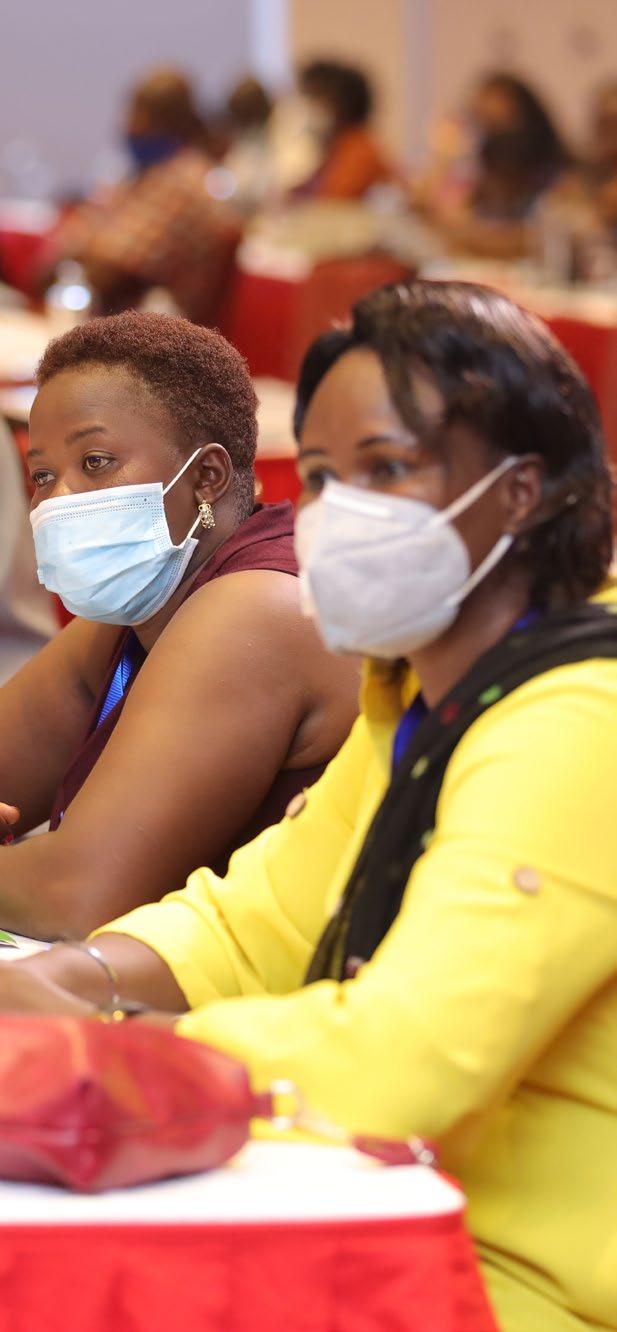
How does your retirement plan look like?
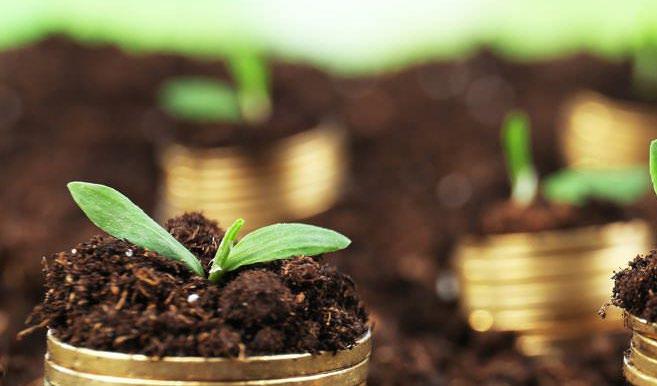
By Adeline Ojung’a
Denis Okemwa, 40, an agriculturalist, is no stranger to investment. He started investing while in his thirties. “I was influenced by my friends who had begun investing at the time. I did not want to be the black sheep in the socio- economic sphere, ” he says.
“The journey has not been easy. The first investment I made was in 2015. I took up a housing plan. The mortgage was to run for ten years but I withdrew my shares by the third year. The length of the term became an issue especially after my family started growing. Welcoming of my third child while still holding the same position with no income increment meant I had to cut costs to meet my family’s needs. It is the house that was sacrificed.”
He continues, “I have since sorted out my finances. I have an education plan with Britam that I pay for each month. This is not an investment per se from my understanding about insurance plans. It is however a security for my children’s education which I am terribly proud of. I have invested in the stock market considerably. I have some savings with a Savings and Credit Co-operative (SACCO) which earn dividends each year boosting my account annually.” I might not have cancelled the housing plan, but all is not lost. At the moment, I am aware of the different avenues to invest in and I am planning on utilizing them well. At retirement, I hope to have a fool proof amount that I can survive on for the remaining quarter of my life, God willing.”
Investing is important, if not mandatory, for wealth creation. It is a smart way of making your money work for you. If you invest your money today, it will increase in the future.
All investments involve some degree of risk. Moses Gitau, Kenya Sports Team manager, was one such unlucky individual in his earlier days. He lost a huge chunk of money while starting out as a rookie in investment. His choice of investment was in property and it is through this that a fraudulent group took advantage of his ignorance. “I was twentyfive when I purchased a 100 by 50-acre plot in Makuyu, back in 1994. After depositing seventy thousand shillings into the payment account, the group went silent. A visit to their office proved futile. They had disappeared without a trace,” he quips, managing a laugh as this is a loss since recovered. and rental houses in his name attest to it. “I have invested in insurance companies, taking advantage of their different funds and money markets as a hands-off way of investing.” He advises that as much as there is risk in investing, if you invest wisely, the potential to gain money is higher than if you never invest.
To reduce the risk on investment, the Kenyan government has ensured that there are bodies put in place to safeguard investors from unnecessary losses. The Insurance Regulatory Authority (IRA) regulates and supervises the insurance industry; formulating and enforcing standards. It also licenses all players and protects the interests of policy holders and beneficiaries.
The Sacco Societies Regulatory Authority (SASRA) is a semi-autonomous Government Agency under the Ministry of Industrialization and Enterprise Development. It was enacted by the Sacco Societies Act (2008) and was inaugurated in 2009, charged with the prime responsibility to license and supervise deposit taking Sacco Societies in Kenya.
The Kenyan Investor Protection Act provides a level of cushioning for general investment including and not limited to the stock market.

When figuring out how to invest money, it’s best to start with the basics. These basics include setting the goal of your investments and determining where to invest money to best achieve each goal.
Grow your money
Investing your money can allow you to grow it. Most investment vehicles, such as stocks, certificates of deposit, or bonds, offer returns on your money over the long term. This return allows your money to build, creating wealth over time.
Start and expand a business
Investing is an important part of business creation and expansion. Many investors like to support entrepreneurs and contribute to the creation of new jobs and new products. They enjoy the process of creating and establishing new businesses and building them into successful entities that can provide them with a strong return on investment.
Reach financial goals
Investing can help you reach big financial goals. If your money is earning a higher rate of return than a savings account, you will be earning more money over the long term and within a faster period. This return on your investments can be used towards major financial goals, such as buying a home, buying a car, starting your own business, or putting your children through college.
Reduce taxable income
As an investor, you may be able to reduce your taxable income by investing pretax money into a retirement fund. If you generate a loss from an investment, you may be able to apply that loss against any gains from other investments, which lowers the amount of your taxable income.
Earn higher returns
In order to grow your money, you need to put it in a place where it can earn a high rate of return. The higher the rate of return, the more money you will earn. Investment vehicles tend to offer the opportunity to earn higher rates of return than savings accounts. Therefore, if you want the chance to earn a higher return on your money, you will need to explore investing your money.
Save for retirement
As you are working, you should be saving money for retirement. While you can receive income from the government through the Kenyan occupational pension schemes, it is not enough to take care of retirement. Put your retirement savings into a portfolio of investments, such as stocks, bonds, mutual funds, insurance plans, real estate, businesses, or precious metals. Then, at retirement age, you can live off funds earned from these investments. Consider being riskier at a younger age with your investments. Greater risk increases your chances of earning greater wealth. Becoming more conservative with your investments as you grow older can be wise, especially as you near retirement age.
Various investments such as stocks, bonds, or real estate will provide either growth or income, and in some cases both.
“Lack of knowledge is the major reason why many people do not invest,” says Fanny Mwema, a financial advisor with ICEA Lion Assurance Company. “The world of money and finance can be confusing and scary. Many parents and almost all educational institutions aren’t able to offer much in the way of financial education for young Kenyans. As a result, most of us go through life without ever understanding the need or the value of investing. For those with the inclination to safeguard their future, it can be an overwhelming task trying to discern credible and reliable financial advice from speculative babble and financial product sales pitches.”
Not investing, or not doing it properly, can mean a longer working life. If taken seriously, the returns generated from your investments can provide financial stability in the future.
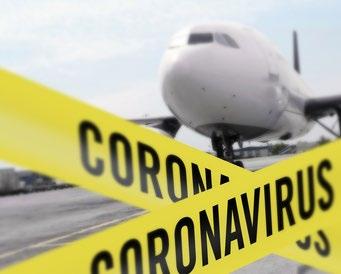
COVID-19: Kenya’s travel agents brace for tough times as hopes for recovery lingers in the horizon.
By Agnes Mucuha
The first reported case of the novel coronavirus (COVID-19) was confirmed in a wet market in Wuhan, China in November 2019. Since then, the virus spread throughout the world in a blur earning itself the enviable pandemic status; leaving a trail of devastation to the travel sector.
At the onset of the pandemic, the World Tourism Organization (UNWTO) warned that travel sector players could be staring at massive losses in revenue based on the “latest developments regarding quarantine measures, travel bans, border closures and the patterns of previous crises.” UNWTO also indicated that international travel could fall 60-80% by close of 2020 due to continued border shutdown by major travel destinations as a measure to curb the spread.
According to its report on COVID – 19 Related Travel Restrictions, UNWTO indicated that by April 20th, 2020; all worldwide destinations had introduced travel restrictions in response to the pandemic. About 45% of the world’s destinations totally or partially closed their borders for tourists, 30% totally or partially suspended international flights, and a further 18% banned entry for passengers from specific countries of origin. The resultant effect was total disruption and paralysis of international travel sector worldwide.
This grim outlook is also painted by the World Travel and Tourism Council (WTTC) which warned that the COVID-19 pandemic could cut a million jobs in the travel and tourism sector, as travelling was
expected to drop by up to 80% worldwide in 2020 compared to 2019.
Challenges in the Kenyan market
Travel agencies in Kenya already took a big hit from the first wave of the pandemic stemming from the travel bans, shelter in place orders and surge in cancellation of flight and hotel bookings that saw a drastic contraction in their business volumes. The third wave is here with us and sadly, there is no reprieve in the horizon.
Many of them complied with compensating their customers with the hope that – by intervening for their clients with airlines – they will have demonstrated their value to customers who will be eager to travel when restrictions allow it.
As the third wave of the virus continues unperturbed, the scale of the crisis on the travel industry has continued to worsen. Many travel agency businesses are likely to find themselves in the woods after exhausting their financial reserves in keeping their businesses afloat during the first wave that lasted about 5-8 months. Too much uncertainty and despair in the air.
Revenue streams for hundreds of travel agents have, since early March 2020, dried up. As the agents painstakingly watched their income grind to a halt, they were forced to take drastic cost cutting measures such as sending employees on unpaid leave and sustaining a skeleton staff on pay cuts. With this there is also a looming reality of job losses that is bringing real and profound worry to thousands of families in Kenya and the region.
It is important to note that the travel industry is an extremely labor-intensive industry and, in a country like Kenya, it is an indispensable and significant source of employment.
This has been an area of concern for travel agents as they have been caught in a catch 22. On one hand, they can barely afford to sustain their employee numbers, while at the same time, keep employees on unpaid leave indefinitely. On the other hand, they cannot part with their employees on redundancy grounds because it is a costly exercise yet most of them currently struggle to even keep the lights on.
Another thorny issue for the travel agents has been the introduction of the 1% minimum tax that took effect January 1, 2021. The Tax Laws (Amendment) Act, 2020 amended various tax laws and was aimed at responding to the COVID-19 pandemic that saw the introduction of the minimum tax. As stipulated in the Finance Act 2020, the minimum tax will be charged on the gross business turnover.
Here is why this is an issue for travel agents. Travel agents essentially sell on behalf of their principals! They simply earn service fees on services provided to travelers. The cash they collect for the air ticket sales is disbursed to the International Air Transport Association (IATA) less their service charge fees. So, the million-dollar question is why should travel agents pay a minimum tax on a gross turnover that isn’t a true reflection of their gross earnings? Applying the minimum tax to travel agents without considering the nature of their business will drive many of them out of business even before their first payout.
Going Forward
Travel agents in Kenya have navigated multiple crises in 2020 that was a ripple effect of the pandemic. They watched as their businesses faced insolvency, their employees going for months without pay and evictions from landlords; but they have remained resilient through it all.
With the future of travel still uncertain, travel agents in Kenya are predicting that they may not be able to sustain their businesses.
However, this is the sad reality to most Kenyans right now with the lockdown imposed in the zoned area (the five counties) disrupting Easter plans that were showing a glimmer of hope to this sector.
The shift on the traveler behaviour calls for creative marketing strategies to get people to travel again. For the next few years, travel agencies must continue to openly promote their value through creative marketing.
Is there hope?
Safety will be the center-hold on whether or not people will travel again and therefore travel agents must ensure that they create enough awareness on good practices in health and hygiene. It is also important to note that in the next few months, travelers will remain wary about the possibility of future outbreaks and their containment measures.
I am confident that the power of human connection will not be washed down, even with this pandemic.
Agnes Mucuha is the Chief Executive Officer at Kenya Association of Travel Agents (KATA).
Contact KATA for any inquiries about travel trend for 2021 in line with COVID-19 protocols or dealing with KATA certified travel agent on info@ katakenya.org
Having a succession plan
By Caroline Shekoh
The clouds are forming and the winds blowing as we weave through the valleys of Limuru, driving down to see the seventh wonder of the world and making a stopover at the town of leisure and pleasure. I join other friends over coffee in one of the hideouts along Moi Road, just a few kilometers from the largest geothermal field in the Kenyan rift. It is owned by an aging man who served the old man during his days at the helm of the nation’s leadership.
After the chit-chat and a few bites, we are almost too consumed by leisure to forego the trip. It’s not an easy journey but the psyche is real. However, all is set and we must proceed. The road ahead is rough and hectic and requires endurance, but the experience that awaits us at the camp outweighs the troubles - that is the spirit of investment.
Why am I bringing this romanticized story to light? It highlights the sense of Personal Investment: Not to be confused with human capital investment, which means being educated and experienced so as to bring value to an economy. Personal investment goes beyond having the capability or realization of economic growth; it is investing in oneself to fulfill a personal, economic, and spiritual goal. Not that having human capital is less valuable than human investment, what differentiates them is that human investment reaches value beyond the material or “tangible” success. Human investment encapsulates both human capital and social success, making it the epitome of self-fulfillment: Perhaps the most important intellectual of sociology, Abraham Maslow, asserts that selfactualization is the final stage of human growth, yet self-actualization cannot be realized without self-investment.
Personal investment reaches beyond financial (tangible) success, it is intangible success which can be attained independent of financial success. One can invest in oneself without financial success, and reach an even higher level. This is social achievement. Financial success is admirable but may not by itself bring you social fulfillment, because one could be financially successful but socially miserable. Lion King may be the top of the animal hierarchy in the jungle, but cannot survive without having a social kinship with other lions, as well as knowing the terrain of his environment. Lion’s strength and his unmatched power is admirable, but it is as strong as the herd he socializes with.
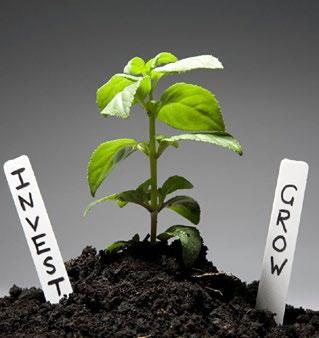
How do you achieve financial and social success? Through personal investment. Personal investment requires financial and social investments with the goal of attaining socio-economic success, beyond the tangible. Look at it more like retiring as a prince but without the gold and diamonds in a crashing economy.
How can you achieve personal financial success? For one, you do not have to look so far. There are financial institutions all over the world, you just have to look at the right places and right people.
Your financial advisor is the first place you look for. They know the terrain of the financial market, and can advise on the future of economic development.
Emerging economies are ripe with financial markets which are soaring with foreign capital and investment. This is particularly true for African countries. Africa has some of the fastest growing economies today, and they are a hub for global financial institutions.
African banks are are flush with cash and need investors and risk takers to find ‘new frontiers’ in the African “wild west’ or ‘wild east’ or everywhere else really. Emerging African countries like South Africa, Nigeria, Kenya, Ghana, Tanzania, are fertile grounds for investment.
But that’s just a part of personal investment. Having personal but professional relationships with financial advisors is crucial for personal growth and success. While some may see opportunities out there for potential investment, it is imperative that you investment in institutions that you know of and trust. Africa has some of the smartest young minds who are ready to get to business. They graduate from the best educational institutions on the continent, which give them top-notch education coupled with exposure to foreign and local markets. If you can trust your grandma to babysit your kids, you can trust these young minds to manage your money. They are smart and capable of investing your money wisely.
But, like I said before, personal investment goes beyond capital investment. It involves you investing in yourself by managing investments that bring you personal growth. Investment in your health, your community and local institutions is crucial in the fulfillment of personal growth. Your personal investment is as good and investing in yourself and in others as well. Your success goes hand in hand with the success of your community. You grow together as a society. This idea is not to be confused with socialism or communism, or any other “-isims”. I mean giving opportunities to people in your community to find their own way towards financial opportunities. They may rise and fall, but they will already have a head start.
Imaging succeeding and having someone to enjoying it with you. What is more joyful than success with your family and community to enjoy it with. Would you rather be successful and live alone at the mountain top, and be miserable like a lost sailor? A word for the wise: Invest in yourself, and be the master of the terrain.
Caroline Shekoh is the CEO Safari Grill & Treats, West Texas
PARTNERS:

